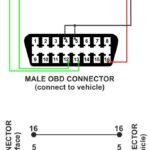Assessing the care needs of elderly individuals is crucial for maintaining their health and well-being as they age. Micronutrient deficiencies are frequently observed in older adults, often exacerbated by age-related medical conditions. Vitamins and minerals like A, C, D, B12, calcium, iron, and zinc are commonly found to be insufficient in this population. Therefore, utilizing effective Tools To Assess Care Needs For Elderly, especially concerning nutrition, becomes paramount for healthcare providers and caregivers.
A comprehensive geriatric nutritional assessment typically involves several key components. Firstly, gathering a detailed nutritional history using a nutritional health checklist is essential. This initial step helps identify potential areas of concern. Secondly, recording the patient’s typical food intake through a 24-hour dietary recall provides valuable insights into their eating habits. Thirdly, a physical examination, with specific attention to signs of malnutrition or overconsumption, is necessary. Finally, select laboratory tests can be conducted if deemed applicable to further investigate nutritional status.
One readily available and simple tool to assess care needs for elderly in terms of nutrition is the Nutritional Health Checklist. This checklist serves as an effective screening instrument for identifying nutritional risks in older persons.
The Nutritional Health Checklist, as shown in the table, includes a series of statements related to eating habits, health conditions, and socioeconomic factors that can impact nutrition. Individuals respond to each statement, and a scoring system categorizes their nutritional risk level. A score of 0 to 2 suggests good nutrition, 3 to 5 indicates moderate nutritional risk requiring lifestyle adjustments, and 6 or more signifies high nutritional risk necessitating professional consultation.
Using tools to assess care needs for elderly like the Nutritional Health Checklist allows for early identification of potential issues and facilitates timely interventions. By incorporating such assessments into routine geriatric care, healthcare professionals can proactively address nutritional deficiencies and contribute to improved health outcomes for older adults. Regular screening and appropriate follow-up actions based on assessment results are vital components of ensuring comprehensive care for the elderly population.


